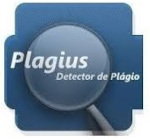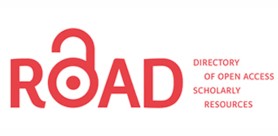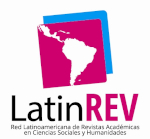ARTIFICIAL INTELLIGENCE AND DIGITAL TECHNOLOGIES IN EDUCATION: OPPORTUNITIES AND CHALLENGES
DOI:
https://doi.org/10.47180/omij.v4i2.215Keywords:
Artificial Intelligence, Digital Technologies, Teaching-Learning, Opportunities, ChallengesAbstract
This article highlights opportunities and challenges regarding the impact of Artificial Intelligence (AI) and Digital Information and Communication Technologies (DICTs) in education. AI finds applications in sectors such as health, finance, and education, while DICTs enhance interaction in the educational sphere. AI enriches the teaching-learning experience by enabling personalization and immediate feedback and facilitating the analysis of educational data. Educational games and chatbots are examples of AI applications that drive self-directed learning. However, challenges persist regarding technological access inequality and data privacy preservation. Moreover, there is potential for AI to diminish human interaction and perpetuate gender stereotypes. Georgia State University illustrates success by employing AI to identify at-risk students and offer chatbots. While AI enhances the teaching-learning process, it brings ethical and educational challenges that require analysis and research investment. Ensuring data privacy, fostering digital proficiency, and reflecting on the ethical aspects of AI in education is crucial.
Downloads
References
AGUIAR, J. J. B.; ARAÚJO, J. M. F. R.; COSTA, E. B. Sistemas de recomendação de objetos de aprendizagem: análises de estratégias envolvendo estudantes de computação. Belém: RFB, 2022. ISBN: 978-65-5889-403-2. Disponível em: <https://doi.org/10.46898/rfb.9786558894032>. Acesso em: 29 maio. 2023. DOI: https://doi.org/10.46898/rfb.9786558894032
CLUA, E.; RODRIGUES; R. F. Jogos, entretenimento e expressões digitais. In: MACIEL, C.; VITERBO, J. Computação e Sociedade: a Tecnologia. Cuiabá, MT: Edufmt Digital, p. 97–138, 2020. ISBN: 978-65-5588-048-9. Disponível em: <https://bit.ly/2Hdx5YT>. Acesso em: 29 maio. 2023.
HEFLING, K. The ‘Moneyball’ solution for higher education — It’s a lot easier to start college than to finish. Can ‘big data’ help?. Politico. 2019. Disponível em: <https://www.politico.com/agenda/story/2019/01/16/tracking-student-data-graduation-000868/>. Acesso em: 29 maio. 2023.
KUYVEN, N. L.; ANTUNES, C. A.; BARROS VANZIN, V. J.; SILVA, J. L. T.; KRASSMANN, A. L.; TAROUCO, L. M. R. Chatbots na educação: uma Revisão Sistemática da Literatura. Revista Novas Tecnologias na Educação, Porto Alegre, v. 16, n. 1, 2018. Disponível em: <https://doi.org/10.22456/1679-1916.86019>. Acesso em: 29 maio. 2023. DOI: https://doi.org/10.22456/1679-1916.86019
LOPES, A. M. M.; NETTO, J. F. M. Sistemas Tutores Inteligentes: um Mapeamento das Produções Brasileiras. In: Anais do Simpósio Brasileiro de Informática na Educação (SBIE), p. 1313-1322, 2020. Disponível em: <https://doi.org/10.5753/cbie.sbie.2020.1313>. Acesso em: 29 maio. 2023. DOI: https://doi.org/10.5753/cbie.sbie.2020.1313
RIBEIRO, K. S. F. M.; MACIEL, C.; BIM, S. A.; AMARAL, M. A. (2020). Gênero e tecnologias. In: MACIEL, C.; VITERBO, J. Computação e Sociedade: a Profissão. Cuiabá, MT: Edufmt Digital, p. 104–140. ISBN: 978-65-5588-046-5. Disponível em: <https://bit.ly/2IQC6Hv>. Acesso em: 29 maio. 2023.
SANTORO, F. M.; REVOREDO, K. C.; BAIÃO, F. A. Impacto social das novas tecnologias. MACIEL, C.; VITERBO, J. Computação e Sociedade: a Sociedade. Cuiabá, MT: Edufmt Digital, p. 12–45, 2020. ISBN: 978-65-5588-047-2. Disponível em: <https://bit.ly/38UTTIp>. Acesso em: 29 maio. 2023.
Downloads
Published
How to Cite
Issue
Section
License
Copyright (c) 2023 Open Minds International Journal

This work is licensed under a Creative Commons Attribution-NonCommercial-NoDerivatives 4.0 International License.
The authors declare that any work submitted, if accepted, will not be published elsewhere, in English or in any other language, and even electronically, unless it expressly mentions that the work was originally published in the Journal.













